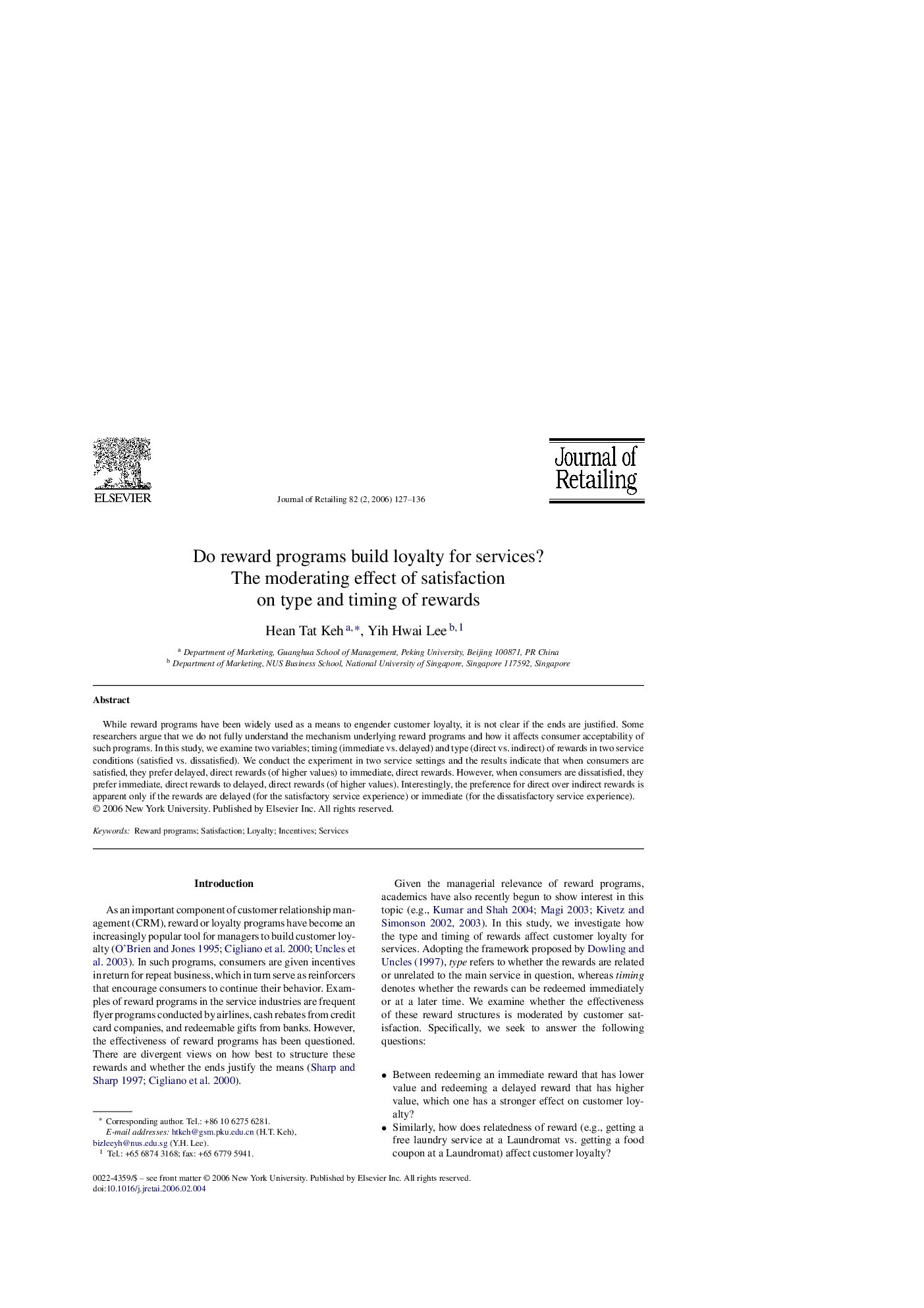| کد مقاله | کد نشریه | سال انتشار | مقاله انگلیسی | نسخه تمام متن |
|---|---|---|---|---|
| 886700 | 913087 | 2006 | 10 صفحه PDF | دانلود رایگان |

While reward programs have been widely used as a means to engender customer loyalty, it is not clear if the ends are justified. Some researchers argue that we do not fully understand the mechanism underlying reward programs and how it affects consumer acceptability of such programs. In this study, we examine two variables; timing (immediate vs. delayed) and type (direct vs. indirect) of rewards in two service conditions (satisfied vs. dissatisfied). We conduct the experiment in two service settings and the results indicate that when consumers are satisfied, they prefer delayed, direct rewards (of higher values) to immediate, direct rewards. However, when consumers are dissatisfied, they prefer immediate, direct rewards to delayed, direct rewards (of higher values). Interestingly, the preference for direct over indirect rewards is apparent only if the rewards are delayed (for the satisfactory service experience) or immediate (for the dissatisfactory service experience).
Journal: Journal of Retailing - Volume 82, Issue 2, 2006, Pages 127–136